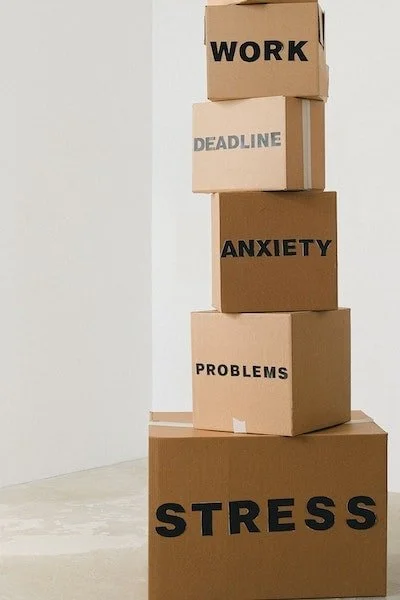3 Ways to Better Handle Stress Together as a Couple
Whether you and your partner are wrestling with the demands of the world or putting too much pressure on each other, the strain can lead to trouble. Many stressed couples experience an exhausting cycle of rumination, isolation, and miscommunication.
None of this promotes closeness.
Whatever your circumstances, learning how to manage stress as a couple is a crucial part of maintaining trust, cementing your partnership, and fostering growth. The following three strategies are important for creating calm and coming together again.
3 Ways to Better Handle Stress Together as a Couple
1. Self-awareness supports stress relief and more positive perceptions.
Starting with your own mental and emotional well-being allows you to engage and support your partner. Acknowledge the stress, don't avoid it or cover it with an unhealthy coping mechanism.
Do your best to process your feelings, check-in with yourself. Let your partner know that you're doing this and encourage them to take some time to do so, too. This will help quell unproductive thoughts like "I'm alone in this" or make snap judgments about your partner's feelings and actions.
Most importantly, choose to be mindful and attentive to what your thoughts and body are telling you. Deep breathing, quiet prayer or meditation, and gentle stretching or journaling can help you deal with your inner state. This will calm you and allow you to be a more accepting, patient, and cooperative partner. You may find that you are less likely to stuff your feelings, overreact, or make assumptions about your partner.
You're a couple but you don't necessarily process stress the same way and that's okay. When you achieve internal clarity, you’ll be more likely to open up confidently and rationally. From there, problem-solving together is more productive.
2. Strike a healthy balance of separateness and connectedness.
With increased internal awareness, you know your partner isn’t your enemy. Yet, stress can cause you to forget what a balanced relationship looks and feels like. You may lean too heavily on each other at times or may not be open enough during others.
Getting back to a mutual comfort zone can be confusing. When this happens, meeting your needs for alone time and couple time is vital.
What makes each of you feel relaxed and confident? One of you may feel relaxed when you have an hour after work to read or watch a program, uninterrupted. Or, one of you may feel confident and capable of facing stress when you have an hour after work to dine together and share some feedback regarding the day's concerns.
The point? Stress requires a response that fits you both and meets your needs for individual peace and cooperative resolution. The goal? To communicate, navigate, and adapt as a team.
3. Seek as much support as possible.
Stress is so hard on many couples because it can become all a couple focuses on. Is stress defining your interactions? Do you feel like you can't do anything or plan anything until the stress is resolved?
That may be a sign that you and your partner need some objective input. This comes in the form of a support system. An invaluable source of relief, other people can infuse your stressed minds and strained connection with much-needed knowledge and perspective.
Your relationship needs a network of experienced, compassionate people outside of your relationship. There is no shame in seeking them out, particularly if you feel that you're repeatedly stressed by the same issues.
Pursue relationship support from trusted, nonjudgmental loved ones. Seek qualified guidance from a relationship therapist.
Finally...
Whether stress is internal or external, you and your partner don't have to surrender to its ill effects. Try to remember that your relationship isn't necessarily the problem.
The problem may be your approach to tension and anxiety. Couples therapy can help you restore calm, learn new skills, and set goals that matter to you both. Please feel free to reach out to us for more information regarding counseling and how we can help.

